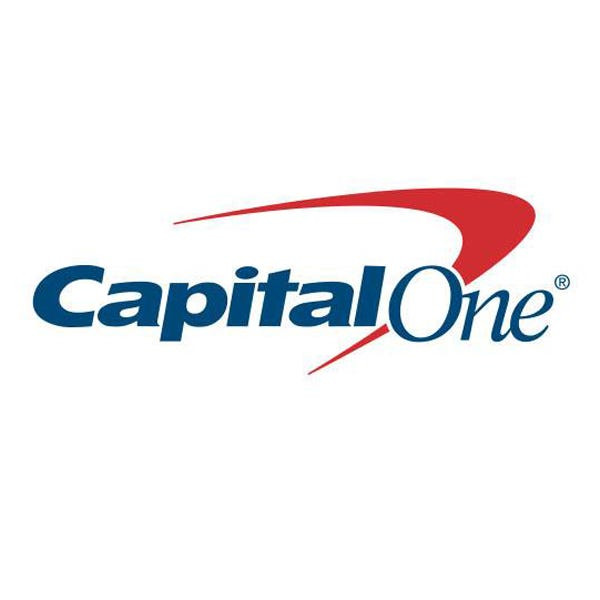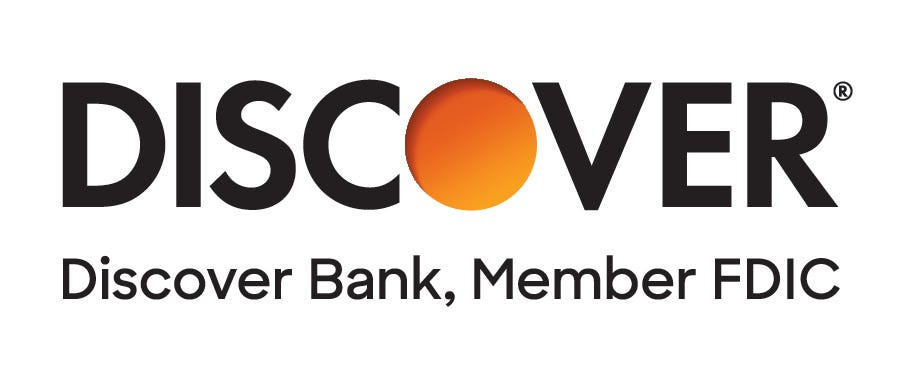Are you wondering Which Banks Are The Best for your unique financial needs? Understanding which banks offer the most competitive rates, the lowest fees, and the most convenient services can significantly impact your financial well-being. At bankprofits.net, we are committed to providing expert analysis and insights to help you make informed decisions and achieve your financial goals with confidence and improve your profitability.
1. Overview of Top Banks in the USA
The best banks offer a blend of robust financial products, excellent customer service, and innovative digital solutions. Let’s explore some leading institutions and what makes them stand out.
1.1 Capital One Bank
Capital One 360 Checking is frequently praised for its fee-free structure, eliminating overdraft, foreign transaction, and monthly service fees. There’s also no minimum opening deposit. Capital One secured the top position in J.D. Power’s 2024 U.S. National Banking Satisfaction Study, highlighting its commitment to customer satisfaction.
 Capital One Capital One 360 Checking
Capital One Capital One 360 Checking
You can access over 70,000 ATMs nationwide without fees. Capital One’s savings account and CD rates are also higher than the national average, making it a solid choice for multiple banking products. With over 280 branches in seven states and around 50 Capital One Cafés, you get the convenience of both online and in-person banking.
1.2 Chase Bank
Chase has an extensive branch network across the continental U.S., making it a convenient choice for customers who prefer in-person banking. Chase offers a variety of accounts and potential relationship perks for customers with multiple accounts. Chase is featured in our guides for the best kids savings accounts and best national banks.
To avoid monthly service fees, ensure you meet the specific account requirements. Out-of-network ATM usage also incurs fees. Chase has over 4,700 branches and approximately 16,000 ATMs across the continental U.S.
1.3 Axos Bank
Axos Bank stands out with its range of checking accounts tailored to different needs:
- Essential Checking: Get paid up to two days early.
- Rewards Checking: Earn a high APY.
- CashBack Checking: Earn up to 1% cash back on purchases.
- Golden Checking: Designed for customers aged 55+.
- First Checking: For teenagers aged 13-17.
A minimum deposit of $250 is required to open a high-yield savings account. To maximize the APY with an Axos Bank Rewards Checking account, you must meet specific criteria, including direct deposits, debit card transactions, and maintaining balances in investment accounts.
As an online-only bank, Axos provides access to around 91,000 ATMs and offers out-of-network ATM fee reimbursements.
1.4 Discover Bank
Discover is an excellent choice for those who prefer to handle all their banking, investing, and borrowing needs in one place, offering a wide range of products, including credit cards.
 Discover® Bank Discover® Bank
Discover® Bank Discover® Bank
You can earn 1% cash back on up to $3,000 in monthly purchases with a debit card. No initial deposit is needed for checking, savings, CD, or money market accounts. Discover has one physical branch in Delaware and provides access to over 60,000 ATMs in the Allpoint and MoneyPass networks.
1.5 Ally Bank
Ally is recognized as one of the best online banks due to its robust banking and investing products. It offers a variety of savings options, including high-yield savings accounts, money market accounts, and various CD options. Ally does not require minimum opening deposits for any of its accounts.
The Ally Savings Account features a unique bucketing tool to help you save for specific financial goals. Ally is also known for having one of the best investment apps for beginners.
1.6 Synchrony Bank
Synchrony Bank offers a high-yield savings account with a competitive APY compared to other well-known banks. There is no minimum opening deposit or monthly fees. Unlike most savings accounts, it provides an ATM card for easy access to your savings.
Synchrony’s offerings are limited to a high-yield savings account, CDs, and a money market account. Transfers to external checking accounts may take a few business days. As an online-only bank, Synchrony doesn’t have physical branches but allows free ATM usage in the Plus, STAR, or NYCE networks and reimburses up to $5 per month for out-of-network ATM fees.
1.7 TD Bank
TD Bank is recognized for its strong customer service, ranking third in JD Power’s 2024 U.S. National Banking Satisfaction Study. Many of its branches are open seven days a week, providing convenient access for customers.
The TD Bank Beyond Checking Account is the only TD Bank checking account that doesn’t charge a fee when you non-TD Bank ATMs. You must maintain a $2,500 balance for TD Bank to reimburse fees charged by out-of-network ATM operators. TD Bank has over 1,100 branch locations across 16 states and about 2,600 ATMs.
1.8 TotalBank
TotalBank is an online-only financial institution known for offering some of the best CD rates available nationwide. TotalBank CDs offer a high APY for various terms. TotalBank’s Online Money Market account also offers a competitive APY and has no monthly service fee.
TotalBank does not offer other banking products, making it less suitable if you prefer to consolidate all your banking needs with one institution.
1.9 Barclays
Barclays Bank offers a high-yield savings account with an APY that is well above the national average. Interest earnings depend on the account balance. Barclays also offers competitive CD rates with a $0 minimum opening deposit.
Barclays does not offer a checking account.
2. Key Factors in Choosing the Best Bank
Choosing the right bank involves carefully evaluating your financial needs and preferences.
2.1 Identifying Your Banking Needs
Start by determining what you need from a bank. Are you looking for a specific type of account, or do you need a range of banking products and services? Do you prefer in-person banking or online management?
2.2 Prioritizing Key Features
Make a list of features that are important to you, such as low fees, competitive interest rates, convenient ATM access, or mobile banking capabilities.
2.3 Evaluating Account Options
Compare the accounts and services offered by different banks, paying attention to fees, interest rates, and minimum balance requirements.
2.4 Considering Customer Service
Look for a bank with a reputation for excellent customer service, whether it’s in person, online, or over the phone.
3. Why Choose the Right Bank?
Selecting the right bank can greatly impact your financial health and offer significant benefits.
3.1 Maximizing Savings
High-yield savings accounts can help you grow your savings faster.
3.2 Minimizing Fees
Low-fee or no-fee accounts can save you money on monthly maintenance, overdrafts, and ATM usage.
3.3 Convenience and Accessibility
Easy access to your money through ATMs, online banking, and mobile apps can streamline your financial management.
3.4 Financial Growth and Planning
A good bank can provide tools and resources to help you manage your finances and plan for the future.
4. Understanding Different Bank Types
The banking landscape includes several types of institutions, each with its advantages and disadvantages.
4.1 Traditional Banks
Traditional banks have physical branches, provide a range of services, and offer in-person customer support.
4.2 Online Banks
Online banks offer competitive rates, lower fees, and convenient digital access but lack physical branches.
4.3 Credit Unions
Credit unions are member-owned, non-profit institutions that often offer better rates and lower fees than traditional banks.
4.4 Community Banks
Community banks focus on local lending and provide personalized service to their communities.
5. Key Features to Look for in a Bank
When evaluating different banks, consider the following features to ensure the best fit for your needs.
5.1 Interest Rates
Look for banks that offer competitive interest rates on savings accounts, CDs, and money market accounts.
5.2 Fees
Minimize your costs by choosing banks with low or no monthly fees, overdraft fees, and ATM fees.
5.3 ATM Access
Ensure the bank offers convenient ATM access through its own network or by reimbursing fees for out-of-network ATMs.
5.4 Mobile Banking
A user-friendly mobile app can help you manage your accounts, transfer funds, and pay bills from anywhere.
5.5 Customer Service
Evaluate the bank’s customer service options, including phone, online chat, and in-person support.
5.6 FDIC Insurance
Confirm that the bank is FDIC insured, protecting your deposits up to $250,000 per depositor, per insured bank.
6. Comparing Top Banks for Specific Needs
Different banks excel in different areas. Here’s a comparison of top banks for specific financial needs.
6.1 Best Banks for Savings Accounts
The top banks for savings accounts provide competitive interest rates, low fees, and easy access to your funds.
6.1.1 Synchrony Bank
Known for its high-yield savings account with a competitive APY and no monthly fees.
6.1.2 Ally Bank
Offers a high-yield savings account with no minimum deposit requirements and a user-friendly mobile app.
6.1.3 Barclays
Provides a high-yield savings account with an APY that is well above the national average.
6.2 Best Banks for Checking Accounts
The best banks for checking accounts offer low fees, convenient ATM access, and robust mobile banking.
6.2.1 Capital One 360 Checking
Offers no monthly fees, overdraft fees, or foreign transaction fees, with access to a wide network of ATMs.
6.2.2 Chase Bank
Provides a large branch network and a range of checking account options, though fees may apply if requirements are not met.
6.2.3 Axos Bank
Offers a variety of checking accounts tailored to different needs, including high-yield and cash-back options.
6.3 Banks with the Best Customer Service
Exceptional customer service can make a significant difference in your banking experience.
6.3.1 Capital One Bank
Ranked highly in customer satisfaction studies for its responsive and helpful service.
6.3.2 Chase Bank
Offers extensive branch and ATM networks, ensuring readily available customer support.
6.3.3 TD Bank
Known for its extended hours and accessible customer service, including many branches open seven days a week.
7. Online vs. Traditional Banks: Which Is Right for You?
Deciding between an online and traditional bank depends on your banking preferences and needs.
7.1 Benefits of Online Banks
- Higher Interest Rates: Lower overhead costs allow online banks to offer more competitive interest rates.
- Lower Fees: Online banks often charge fewer fees than traditional banks.
- Convenient Access: Manage your accounts from anywhere with mobile and online banking.
7.2 Benefits of Traditional Banks
- In-Person Service: Access to physical branches for face-to-face assistance.
- Range of Services: Traditional banks typically offer a wider range of services, including loans and investment products.
- Personal Relationships: Build relationships with bank staff for personalized service.
7.3 Making the Choice
Consider whether you prioritize convenience and competitive rates (online banks) or personal service and a wide range of services (traditional banks).
8. How to Switch Banks Seamlessly
Switching banks can seem daunting, but with careful planning, it can be a smooth process.
8.1 Research and Select a New Bank
Identify a bank that meets your needs and offers the features you’re looking for.
8.2 Open a New Account
Open an account online or at a branch, providing the necessary documentation and information.
8.3 Transfer Funds
Move your money from your old account to your new account.
8.4 Update Direct Deposits and Automatic Payments
Notify your employer and any companies with automatic payments of your new account information.
8.5 Close Your Old Account
Once you’ve completed all necessary transfers and updates, close your old account.
9. Evaluating Bank Trustworthiness and Ethics
Before choosing a bank, it’s important to assess its trustworthiness and ethical practices.
9.1 Checking BBB Ratings
The Better Business Bureau (BBB) provides ratings based on customer complaints, advertising, and transparency.
9.2 Reviewing Settlement History
Check for any recent settlements or controversies involving the bank.
9.3 Considering Ethical Practices
Evaluate the bank’s commitment to ethical practices and community involvement.
10. Best Banks: FAQs
10.1 What are the best banks for savings accounts?
The best banks for savings accounts are online banks or banks with no-fee high-yield savings accounts. For low fees and the highest APYs, use an online bank. Physical banks are better for anyone who needs to deposit cash regularly.
10.2 Which banks have the lowest fees for checking accounts?
Online banks usually have the lowest fees for checking accounts, but most do not have any physical branches. You can find checking accounts that waive typical bank fees if you value banking in-person.
10.3 How can I choose the best bank?
Consider which type of financial institution you want to bank with. If you’re looking for a bank account, look at various options from different financial institutions and compare fees, interests rates, opening requirements, and any other perks.
10.4 What is the No. 1 bank in America?
Chase is the No. 1 bank in America with the highest number of locations, offering easy access to money and regular customer service.
10.5 Which bank has the most complaints?
Citibank may be the bank with the most complaints. It is not accredited by the Better Business Bureau and received a score of D-.
Conclusion: Empowering Your Financial Future
Choosing the right bank is a crucial step toward securing your financial future. By understanding your needs, evaluating your options, and considering key factors such as interest rates, fees, and customer service, you can make an informed decision that supports your financial goals.
At bankprofits.net, we are dedicated to providing you with the insights and resources you need to navigate the complex world of banking and achieve financial success. Explore our comprehensive guides, expert analyses, and up-to-date information to discover the best banking solutions for your unique situation.
Ready to take control of your financial future? Visit bankprofits.net today to explore our in-depth analyses, discover proven strategies for maximizing bank profits, and contact us for personalized advice.
Address: 33 Liberty Street, New York, NY 10045, United States
Phone: +1 (212) 720-5000
Website: bankprofits.net.

